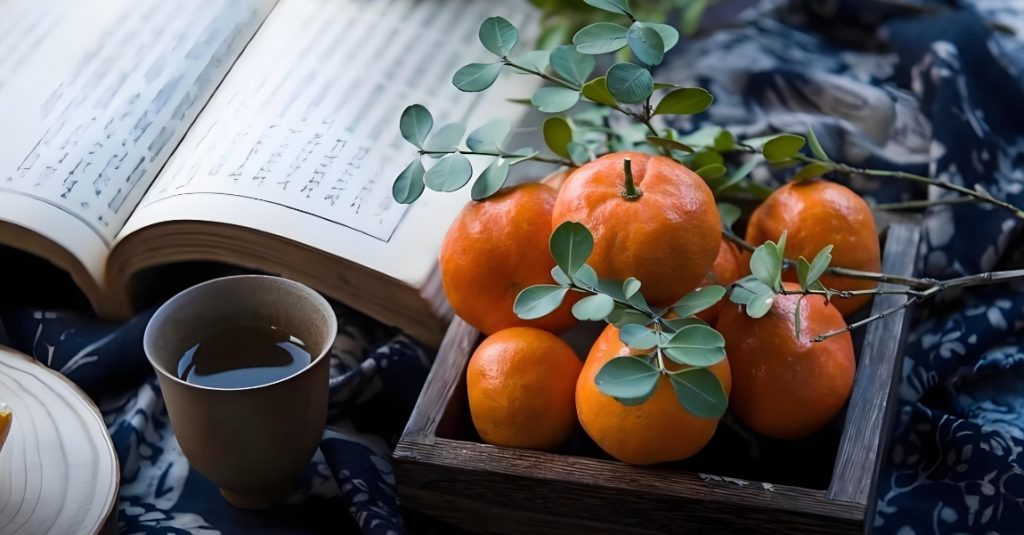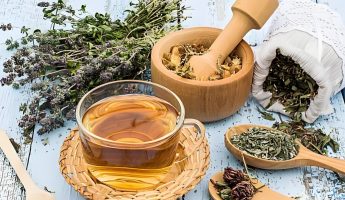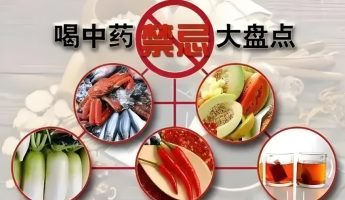Red soaked tangerine, as a traditional Chinese medicine, is regarded as a precious “treasure” throughout its body. The characteristics of oranges and tangerines are described in detail in the Compendium of Materia Medica: oranges have smaller fruits, slightly sour petals, thin and red skin, and a spicy and bitter taste; In contrast, the fruit of tangerines is larger, with slightly sour petals, thicker and yellowish skin, and pungent and sweet leaves. In short, those with thin and easy to peel skin are usually called oranges, while those with thick skin that requires a knife or force to peel off are called oranges. Both tangerines and tangerines belong to the broad skinned citrus category of the Rutaceae family, and have similar edible and medicinal values.

The flesh of citrus fruits has a moderate sweet and sour taste, and is mild in nature. It belongs to the lung meridian. It is mainly used to treat symptoms such as chest and diaphragm depression, vomiting, loss of appetite, insufficient stomach yin, dry mouth and tongue, lung heat cough, and has auxiliary therapeutic effects on hypertension, arteriosclerosis, and cardiovascular diseases.
When citrus fruits mature, their outer skin is called tangerine peel in traditional Chinese medicine, which has a tough taste and mild properties. Chenpi (dried tangerine peel) has the effects of regulating qi, strengthening the spleen, stimulating appetite, drying dampness, and resolving phlegm. It is commonly used to treat symptoms such as bloating, poor appetite, vomiting, diarrhea, cough, phlegm accumulation, belching, and hiccups. In the Compendium of Materia Medica, it is mentioned that tangerine peel can relieve dampness and dryness, disperse and warm, and its principle of treating various diseases mainly lies in its ability to regulate qi and dry dampness. Chenpi can be used in combination with various drugs, and according to the different properties of the drugs, Chenpi can exert different effects such as tonifying, purging, lifting, and lowering. Traditional Chinese medicine also believes that aged tangerine peel is better, as pointed out by the “Six Chen Songs” in the ancient medical book “Pearl Sac Finger Palm Supplement to Medicinal Properties”. Therefore, fresh citrus peel is not suitable for direct consumption.
Immature citrus peel, on the other hand, is called green peel, which has the same bitter taste and mild nature. Qingpi has the effects of soothing the liver, relieving depression, dispersing nodules, and eliminating phlegm. It is commonly used to treat symptoms such as chest and rib pain, bloating and fullness of the stomach, hernia, indigestion, breast swelling or lumps. Many ancient medical books, such as the “Compendium of Materia Medica” and the “Compendium of Materia Medica”, have detailed the medicinal value of Qingpi.
Between the inner layer of the citrus peel and the flesh, there is a network of tendons and collaterals, known in traditional Chinese medicine as the orange ladle (orange collaterals). Juluo has a sweet and bitter taste, a peaceful nature, and belongs to the liver and lung meridians. It has the effects of unblocking meridians and resolving phlegm, promoting qi and blood circulation, resolving phlegm and stopping cough. It is commonly used to treat symptoms such as cough, chest and rib pain, and bloody phlegm caused by phlegm stagnation in the meridians. Ancient medical books also recorded that Juluo has the effects of sobering up and fighting cancer.
The mature kernels of citrus fruits, known as orange pits, have a bitter taste, mild properties, are non-toxic, and are classified in the liver meridian. Orange pits have the effects of dispersing nodules, regulating qi, and relieving pain. They are commonly used to treat symptoms such as discomfort in the epigastric region, cough, traction, chest pain, back pain, testicular swelling and pain. The ancient medical book “Rihuazi Bencao” provides a detailed description of the medicinal methods and effects of orange pits.
The leaves of citrus, also known as orange leaves in traditional Chinese medicine, have a tough taste and a peaceful nature, and are classified under the liver meridian. Orange leaves have the effects of soothing the liver and regulating qi, reducing swelling and dispersing toxins. They are commonly used to treat symptoms such as rib pain, breast abscess, and breast lumps. Many ancient medical books have highly praised the medicinal value of orange leaves.
In addition, the outer layer after removing the white inner layer of the orange peel is called orange red. Orange red has a bitter and pungent taste, mild in nature, and has the effects of regulating qi, dispelling phlegm, and stopping cough. It is commonly used to treat symptoms such as cough, excessive phlegm, and stagnant food. From both the perspective of consumption and medicinal use, orange red is a good medicine for treating phlegm diseases.
However, traditional Chinese medicine also points out that products that are spicy, bitter, and dry can easily help with heat. Therefore, people with actual heat in the body should use them with caution or consume less citrus fruits and their skin, leaves, seeds, and other parts. For people who experience symptoms such as mouth sores, dry mouth, sore throat, and constipation, it is not advisable to consume citrus fruits excessively or temporarily avoid them. In addition, due to the presence of fruit acids and vitamin C in citrus fruits, it is best for people who are taking Western medicine or have stone disease to choose whether to consume citrus fruits under the guidance of a doctor.



